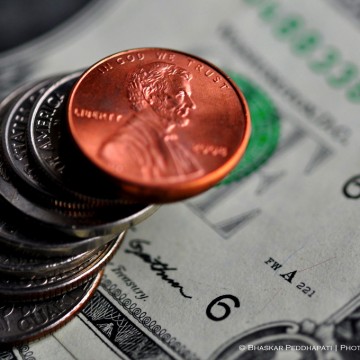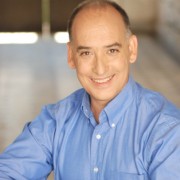Personal Finance: Smart Saving And The Magic of Compounding
Wednesday, September 10, 2014

Photo Credit: peddhapati via Compfight cc
We worry whether our money will earn enough to help us meet our goals and if we are taking on enough (or too much) risk to grow that money over time.
While these are valid concerns, they are ultimately beyond our control. Other than diversifying broadly to lower volatility and keeping investment and tax costs low to increase net gain, there is nothing we can do to determine the actual rate of return on our investments; the markets will ultimately decide this fate for us.
There is, however, something we can all do that is completely within our control and that can have a great impact on whether we achieve our life goals.
Indeed, by forming certain habits early, we can help reduce the rate of return that we need to realize on our investments and even how much we need to invest in the first place. I am referring to the habit of saving.
Saving
Perhaps the greatest risk we all face is not saving enough to meet our long term needs. Saving as much as we can and beginning this practice early allows our money to grow exponentially with time given the magic of compounding.
Just how significant an advantage one can reap from an early commitment to saving can be illustrated in the following example.
Frick and Frack are twin brothers. Frick decides to begin saving at age 30 at a rate of $10,000 per year. He continues this practice until the age of 40, at which time he stops saving altogether.
Frack waits until he turns 45 to begin saving. He puts away $15,000 per year until retiring at the age of 65. If we assume both brothers earned the same 7 percent average annual rate of return, how much did each accumulate by the age of 65?
First, let's compare how much each brother socked away. Frick saved $100,000 in total over 10 years compared to Frack who saved a whopping $300,000 over 20 years.
In spite of having saved more over a longer period of time, however, it turns out that Frack winds up with the smaller nest egg of the two. At age 65, Frack's savings will have grown to about $615,000, certainly a significant sum.
In comparison, however, Frick's savings will have grown to approximately $750,000, $135,000 more than Frack, in spite of Frick having only saved a third of what Frack saved for half as long. This is the magic of compounding at work and a great example of why saving early is so beneficial.
The moral of the story is that we are more in control of our financial destinies than we think. By deciding to save early and often, we can minimize the need to risk our money in the stock market since even modest rates of return over long periods of time yield impressive sums. The secret to getting rich is to do so slowly, saving as much as we can for as long as possible.
So take matters in your own hands and get started, now.
Joe Alfonso 
Home Page Photo Credit: Tax Credits via Compfight cc
Related Articles
- Money Talks: Four Tips for Successful Investing
- Oregon Secures $300,000 in Federal Funding For Small Business Grants
- Jack of All Trades: The Advantage of Career Generalism




 Delivered Free Every
Delivered Free Every
Follow us on Pinterest Google + Facebook Twitter See It Read It